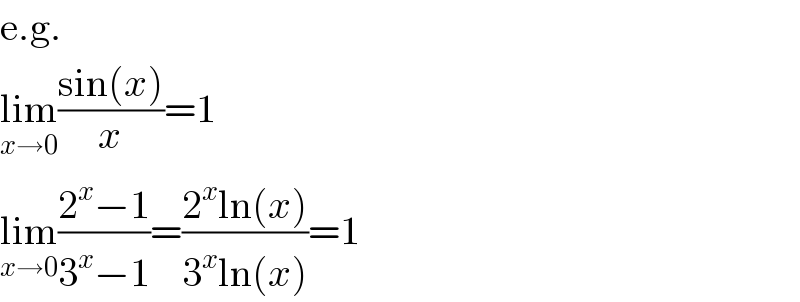
Question and Answers Forum
Question Number 22263 by kasiulka202 last updated on 14/Oct/17

Answered by Joel577 last updated on 14/Oct/17

Answered by FilupS last updated on 14/Oct/17

Commented by FilupS last updated on 26/Oct/17

Commented by ajfour last updated on 26/Oct/17

